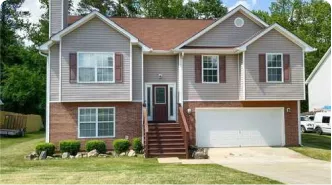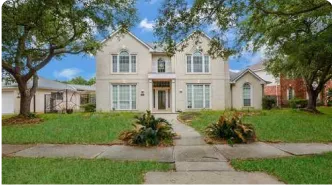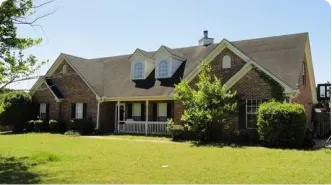Louisiana's rich history and vibrant culture make it a hotspot for short-term rentals. This guide covers the intricate legal framework governing Airbnb and vacation rentals in Louisiana, emphasizing the importance of state and local compliance.
Louisiana's Definition of a Short Term Rental
A short-term rental in Louisiana is defined as an accommodation rented for fewer than 30 consecutive days. This encompasses various types of rentals, including nightly and weekly ones. The definition appears in Louisiana Revised Statutes Section 47:338.221.
Rentals must occur in a legal dwelling unit, and rentals exceeding 30 days are classified as long-term, thus not requiring a short-term rental permit.
Key requirements for hosts in Louisiana:
- A minimum $1,000,000 commercial general liability insurance policy
- Maintenance of guest registration records, including dates of occupancy, guest numbers, and rates
- Compliance with dwelling and occupancy limits
- Specific information requirements in STR advertisements or listings
Understanding the nuances of short-term rental regulations, especially in states like Louisiana, is vital for property owners and managers. With continuous updates and variations across states, staying informed is key to compliant and successful rental operations.
Starting a Short Term Rental Business in Louisiana
Louisiana, with its rich culture and tourism, offers a promising landscape for short-term rental businesses, especially Airbnb. Navigating the regulatory environment is crucial for success. Below are insights into setting up a short-term rental in Louisiana, highlighting necessary steps and requirements.
The process for starting a new Airbnb rental business in Louisiana is:
- Licensing and Permits: Obtain a state sales tax registration certificate through the Louisiana Department of Revenue at no cost. Research and acquire local permits and licenses, which vary by parish or city. Zoning and building permits might be necessary for property renovations.
- Insurance Requirements: Secure specialized insurance coverage, as standard homeowner policies often exclude short-term rentals. Most Louisiana municipalities require a $1,000,000 commercial general liability insurance policy.
- Operational Preparations: Comply with state safety codes enforced by the Louisiana State Fire Marshal, including smoke alarms, fire extinguishers, exit signage, and maximum occupancy limits. Local occupancy restrictions also apply, like New Orleans' limit of 2 adults per bedroom. Ensure the rental is a legal dwelling unit and meets all occupancy and safety standards.
- Tax Compliance: Collect and remit state and local taxes, including sales and hotel/motel occupancy taxes. Create a GeauxBiz account for electronic filing with the state.
- Marketing and Management: Develop house rules, rental contracts, and cleaning plans. Optimize listing photos and descriptions for local market conditions.
Starting a short-term rental business in Louisiana involves understanding state and local regulations, obtaining necessary licenses and insurance, ensuring tax compliance, and preparing operationally. By diligently adhering to these guidelines, entrepreneurs can establish a successful and compliant short-term rental business in Louisiana.
Short Term Rental Licensing Requirements in Louisiana
Louisiana's short-term rental market is thriving, attracting both tourists and property owners. To legally operate a short-term rental in Louisiana, understanding the licensing requirements is crucial. This comprehensive guide covers the essentials of obtaining and maintaining a short-term rental license in the state.
- State and Local Registrations: Obtain a state sales tax registration certificate using form R-1029. Local permits and licenses are required, varying by parish and city. Comply with zoning and building permits for property modifications.
- Safety and Operational Standards: Install operating smoke alarms, fire extinguishers, and exit signage. Ensure no tripping hazards and clear egress paths. Adhere to maximum occupancy limits based on bedroom size and window space. The state fire marshal oversees these requirements and can conduct surprise inspections.
- Insurance Needs: Secure insurance coverage for property damage, guest injuries, and lost rental income. Standard homeowner or landlord policies may not cover short-term rentals. A minimum of $1,000,000 in commercial general liability coverage is standard across most Louisiana municipalities.
- Tax Registrations: Register with the Louisiana Department of Revenue for sales tax. Local tax authority registration might be needed for local lodging taxes. Obtain a Louisiana Revenue Account Number for tax remittance.
- Local Regulations Awareness: Understand local rules regarding permits, zoning, and building standards. Check for any homeowner association or landlord restrictions on short-term rentals.
Navigating the licensing requirements for short-term rentals in Louisiana demands attention to detail and compliance with both state and local regulations. By fulfilling these obligations, property owners can legally benefit from the lucrative short-term rental market, ensuring a safe and enjoyable experience for guests.
Required Documents for Louisiana Short Term Rentals
Navigating the landscape of short-term rental regulations in Louisiana, particularly concerning required documents, can be challenging. This guide offers clarity on what you need to know.
Required documents to operate a short-term rental in Louisiana:
- State Sales Tax Registration Certificate: Essential at the state level
- Local Permits: Varies by parish and city
- Zoning and Building Permits: If property renovations are needed
- Operational Requirements Compliance: Including smoke detectors, parking availability
- Proof of Insurance: Commercial general liability policy documentation
- Property Ownership Documentation: Deed or lease with owner permission
- Neighbor Notification: Required in some cities like Shreveport and Lafayette
Various License Types in Major Cities: New Orleans now requires Non-Commercial STR licenses (NSTR) for residential zones and Commercial STR licenses (CSTR) for commercial zones. The previous Residential STR licenses expired August 31, 2023. Baton Rouge requires a $100 permit valid unless the rental ceases operation for one year. Lafayette requires a $100 annual permit valid for two years. Shreveport requires permits valid for two years.
Louisiana state agencies are required to submit a records retention schedule to the State Archives. This schedule lists the agency's records and the proposed duration for which they must be kept, for reasons like administrative, legal, or fiscal purposes. Retention periods may vary depending on factors such as legal requirements, regulatory standards, and the record's value to the agency.
Louisiana Short Term Rental Taxes
Navigating the tax landscape for short-term rentals in Louisiana is crucial for operators in this vibrant market. Given Louisiana's popular destinations like New Orleans, Baton Rouge, and Lafayette, understanding these taxes' intricacies is essential for compliance and optimal operation.
Short-term rentals in Louisiana, akin to hotel and B&B stays, are subject to a variety of taxes. These include:
- Sales Tax: The state levies a 4.45% sales tax on all rental fees.
- Hotel/Motel Occupancy Tax: An occupancy tax of 4-5% also applies to short-term rentals.
- Local Taxes: These may include local parish or municipal sales taxes ranging from 2-7% and local hotel taxes, which vary depending on the area. Some regions also impose additional local fees on top of state and local taxes.
City-Specific Tax Examples:
- New Orleans includes Stadium and Exposition District Room Occupancy Tax plus nightly fees of $5 for former RSTR properties and $12 for CSTR properties
- Baton Rouge has combined lodging taxes totaling 15.9%
- Lafayette requires collection of parish sales tax and city lodging tax
Short-term rental operators must understand the difference between lodging tax and income tax:
- Lodging Tax: This is a percentage of the guest's stay cost, added to the bill, which the host must collect and remit to the appropriate tax authority.
- Income Tax: Operators must report and pay income tax annually to the federal government and many state governments on taxable income, which is income after allowed expense deductions.
- When comparing Louisiana to other states, it's essential to note differences in property, sales, and income tax structures:
- Property Tax: Louisiana has an effective property tax rate of 0.53%, influenced partly by the state's homestead exemption.
- Sales Tax: Louisiana's combined state and local sales tax rate is one of the highest in the U.S. at 9.52%.
- Income Tax: Different states have varying approaches to income tax. Some states, like Florida and Nevada, don't collect any income taxes, while others have graduated income tax rates.
Operators can potentially write off various rental expenses, including:
- Improvement vs. Repairs: Improvement expenses contribute to the property's restoration, adaptation, or betterment and are deducted over their useful lifetime. In contrast, repairs are immediate expenses.
- Rental Expenses: If the property is rented out for more than 14 days, operators may be eligible to write off some or all of their rental expenses.
Short-term rental operators in Louisiana face a complex tax environment that demands careful compliance with state and federal regulations. Comparatively, Louisiana's tax structure, with its high sales tax and moderate property tax, presents unique challenges and opportunities for operators. Staying informed and seeking professional advice is advisable for optimal tax management in this sector.
Short Term Rental Rules By Louisiana City
Louisiana's diverse cities, from vibrant New Orleans to the capital Baton Rouge, each have unique regulations for short-term rentals. These rules are not only city-specific but also interact with state-level regulations, creating a layered legal landscape for hosts and guests of services like Airbnb. Below, we explore the specific rules, reasons behind them, and their enforcement in key Louisiana cities.
State and Local Oversight in Louisiana
- State Level: The state fire marshal's office oversees safety standards for all short-term rentals in Louisiana. This includes smoke alarms, fire extinguishers, and exit signage requirements. State inspectors can conduct surprise inspections to ensure compliance.
- Local Level: Local municipalities enact ordinances regulating aspects such as registration, permitting, taxes, and occupancy limits. These are often in addition to state standards.
New Orleans, Louisiana Short Term Rental Laws
- Current Permit System: As of 2024, New Orleans operates under a new Non-Commercial STR (NSTR) system for residential zones. The previous Residential STR permits expired August 31, 2023.
- Application Process: NSTR applications are accepted only during quarterly windows: June 1-7, September 1-7, and December 1-7. Renewals occur April 1-7. A maximum of one NSTR is permitted per square block, allocated by lottery when multiple applicants exist.
- Permit Requirements: Both an Operator permit (OSTR) and Owner permit (NSTR or CSTR) are required. Properties must have $1,000,000 commercial general liability insurance. Owners must complete mandatory STR training.
- Restrictions: STRs are restricted in certain zoning areas like the Garden District and Bywater. Overnight occupancy is limited to 2 adults per bedroom. Commercial STR permits in commercial zones are currently frozen, with no new applications accepted as of June 2024.
- Fees: NSTR fees are prorated based on the lottery cycle: full fees for July winners, 75% for October, 50% for January, 25% for April. CSTR renewal fees are $1,000. Nightly occupancy fees are $5 for former RSTR properties and $12 for CSTR properties.
- Platform Requirements: Starting March 1, 2025, platforms must verify licenses electronically. Platform fees will be tiered from $5,000 to $30,000 based on verification volume. Listings must be reverified every 30 days.
Baton Rouge, Louisiana Short Term Rental Laws
- Permit Requirements: All STRs must obtain a $100 permit from the Permits and Inspections Division. The permit is valid unless the short-term rental ceases operation for one year.
- Operational Rules: Owner-occupied STRs can rent all bedrooms except one. Whole-home STRs are limited to 2 people per bedroom plus 2 additional people. One parking space per bedroom is required.
- Tax Requirements: Hosts must register to remit sales, use and occupancy taxes or use an online platform registered to remit these taxes. Total lodging taxes equal 15.9%.
- Violations: Potential loss of rental ability for one year after three violations adjudicated within a calendar year.
- Enforcement: Regulations have been in effect since November 2022. STRs are generally allowed in residential zones unless prohibited by private restrictive covenants.
Shreveport, Louisiana Short Term Rental Laws
- Permit Requirements: Mandatory permits for operation effective from August 2, 2021. Permits are valid for two years and can be renewed. Applications are processed through the Deckard online system.
- Zoning Regulations: New ordinance establishes zoning regulations for short-term rentals. Type A and Type B STR categories exist with different restrictions. Type B STRs require 500 feet spacing between properties.
- Application Requirements: Hosts must notify neighbors within 500 feet of their STR plans. Proof of mailing these notices must be submitted with the permit application.
- Permit Deadline: Existing short-term rentals had to apply for a permit by February 1, 2022.
- Enforcement Status: As of January 2024, approximately 79% of Shreveport STRs remained unregistered, with limited enforcement action taken by the city.
Lafayette, Louisiana Short Term Rental Laws
- Current Status: New regulations became effective January 1, 2024, with the ban in residential zones taking effect October 6, 2024.
- Restrictions: STRs are banned in single-family residential (RS) zoning districts, which account for 75% of the city's residential area. In permitted zones, a maximum of 4 rooms with 2 people per room is allowed. No paid events or private parties are permitted in Residential-Mixed zones.
- Permit Requirements: Operators must obtain a $100 annual STR license valid for two years. A Sales and Use Tax license is also required. Operators must notify immediate neighbors in writing.
- Operational Requirements: An agent must be available 24/7 and respond within 30 minutes to one hour to address concerns. Single rooms may be rented, but only one at a time.
- Enforcement: Fines range from $500 to $1,000 per day of unlawful operation. Permit revocation prevents reapplication for one year.
Recent Regulatory Changes and Updates
Louisiana's short-term rental landscape continues to evolve with significant changes in 2023 and 2024:
- New Orleans Platform Verification: The city council unanimously approved Ordinance 34,806 in October 2024, requiring platforms to electronically verify all listings starting March 1, 2025. This aims to end the "whack-a-mole" of illegal listings reappearing under false license numbers.
- Lafayette Residential Ban: The ban on STRs in single-family residential zones took full effect October 6, 2024, making Lafayette one of the most restrictive cities in Louisiana for short-term rentals.
- New Orleans NSTR Lottery System: Following a federal lawsuit that temporarily halted the process in 2023, the NSTR lottery system resumed in February 2024 after the court lifted its stay.
- Enforcement Variations: While New Orleans dedicates significant resources to monitoring and enforcement, other cities like Shreveport have taken a more relaxed approach, with the majority of STRs operating without permits as of 2024.
Takeaway
Louisiana's short-term rental market thrives on a deep understanding of regional regulations. Adapting to these legal nuances is key for anyone looking to successfully navigate the state's diverse rental landscape. Operators must stay current with evolving regulations, as cities continue to adjust their approaches to managing the growth and impact of short-term rentals. Compliance with both state and local requirements remains essential for successful operation in this complex regulatory environment.
.svg)






.webp)







%201.webp)
%203.webp)



%201.webp)
.webp)


.jpeg)

